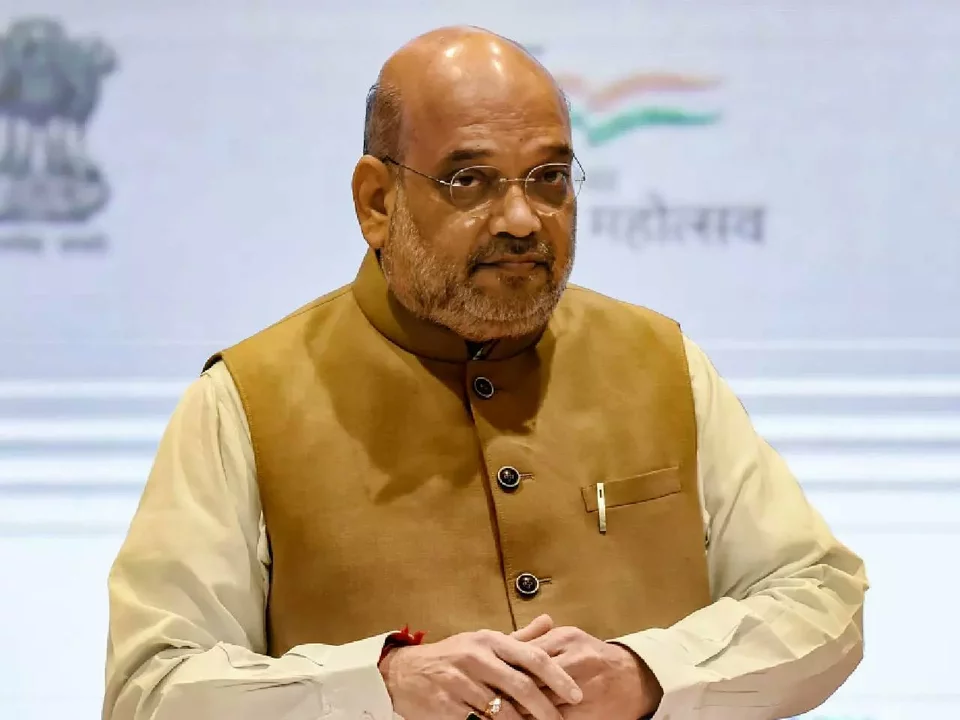Introduction: Setting the Stage for Amit Shah's Political Journey
As we delve into the world of Indian politics, we often come across some influential and polarizing figures. One such prominent name is Amit Shah, the current Home Minister of India and a member of the ruling Bharatiya Janata Party (BJP). In this article, we will explore different aspects of Amit Shah's political career and discuss whether India deserves a politician like him.
Amit Shah: A Brief Background
Amit Shah was born in Mumbai, India, in 1964. He started his political career as a leader of the student wing of the BJP, the Akhil Bharatiya Vidyarthi Parishad (ABVP). Over the years, he has worked his way up the ranks and has held various positions within the party. He became the party's national president in 2014 and played a crucial role in the BJP's victory in the general elections that year. Under his leadership, the party has continued to grow and expand its presence across the country.
The Master Strategist: Amit Shah's Role in BJP's Electoral Success
Amit Shah is often credited with the BJP's remarkable electoral success in recent years. Known as the "Chanakya" of Indian politics, he is considered a master strategist whose meticulous planning and execution have helped the party secure victories in several state and national elections. His ability to connect with the grassroots and understand the pulse of the people has made him an indispensable asset to the BJP.
Controversial Decisions: The Other Side of Amit Shah's Political Career
While Amit Shah has undoubtedly contributed to the success of the BJP, his political career has been marred by a series of controversies. He has been accused of orchestrating fake encounters and has faced serious allegations of corruption. While he has never been convicted of any wrongdoing, these controversies have raised questions about his integrity and ethics as a politician.
Amit Shah and the Abrogation of Article 370
One of the most significant and controversial decisions taken by Amit Shah as the Home Minister was the abrogation of Article 370, which granted special autonomy to the state of Jammu and Kashmir. While the move was hailed by many as a bold step towards integrating the state with the rest of India, it also drew widespread criticism for the manner in which it was implemented. The communication blackout and the detention of political leaders in the state were seen as undemocratic and heavy-handed.
The Citizenship Amendment Act and Amit Shah
Another contentious decision taken by Amit Shah was the introduction of the Citizenship Amendment Act (CAA), which offers citizenship to non-Muslim refugees from neighboring countries. The act sparked widespread protests across India, with many accusing the government of discrimination against Muslims. Amit Shah's unwavering support for the act has further polarized opinions about him and his role in Indian politics.
Does India Need a Politician Like Amit Shah?
The question of whether India deserves a politician like Amit Shah is a complex one. On the one hand, his contributions to the BJP's electoral success cannot be ignored, and his leadership has certainly played a crucial role in shaping the political landscape of the country. On the other hand, the controversies surrounding him and his involvement in divisive decisions like the abrogation of Article 370 and the CAA raise serious concerns about his commitment to democratic values and the secular fabric of India.
Amit Shah's Impact on Indian Politics
There is no denying that Amit Shah's presence in Indian politics has had a profound impact on the country. His strategic skills and ability to consolidate power have changed the dynamics of the political arena, with the BJP emerging as the dominant force in recent years. However, his influence has also led to growing polarization and a sense of unease among minority communities, which is a cause for concern.
Conclusion: Weighing the Pros and Cons
In conclusion, evaluating whether India deserves a politician like Amit Shah requires a careful consideration of both his achievements and his shortcomings. While his role in the BJP's electoral success and his strategic acumen are undeniable, the controversies surrounding him and his involvement in divisive decisions cannot be ignored. Ultimately, it is up to the people of India to decide whether they want a politician like Amit Shah shaping the future of their country.
